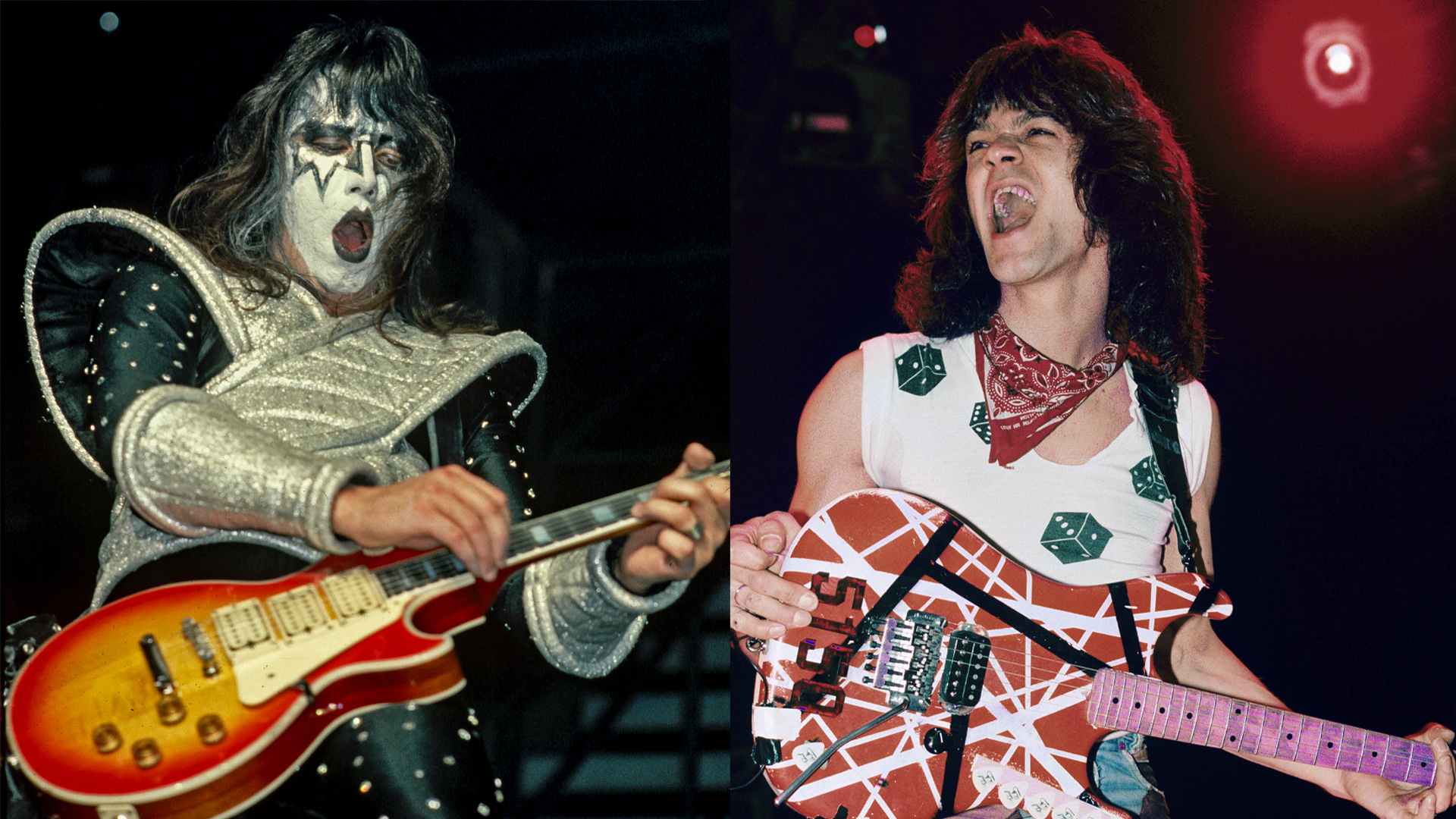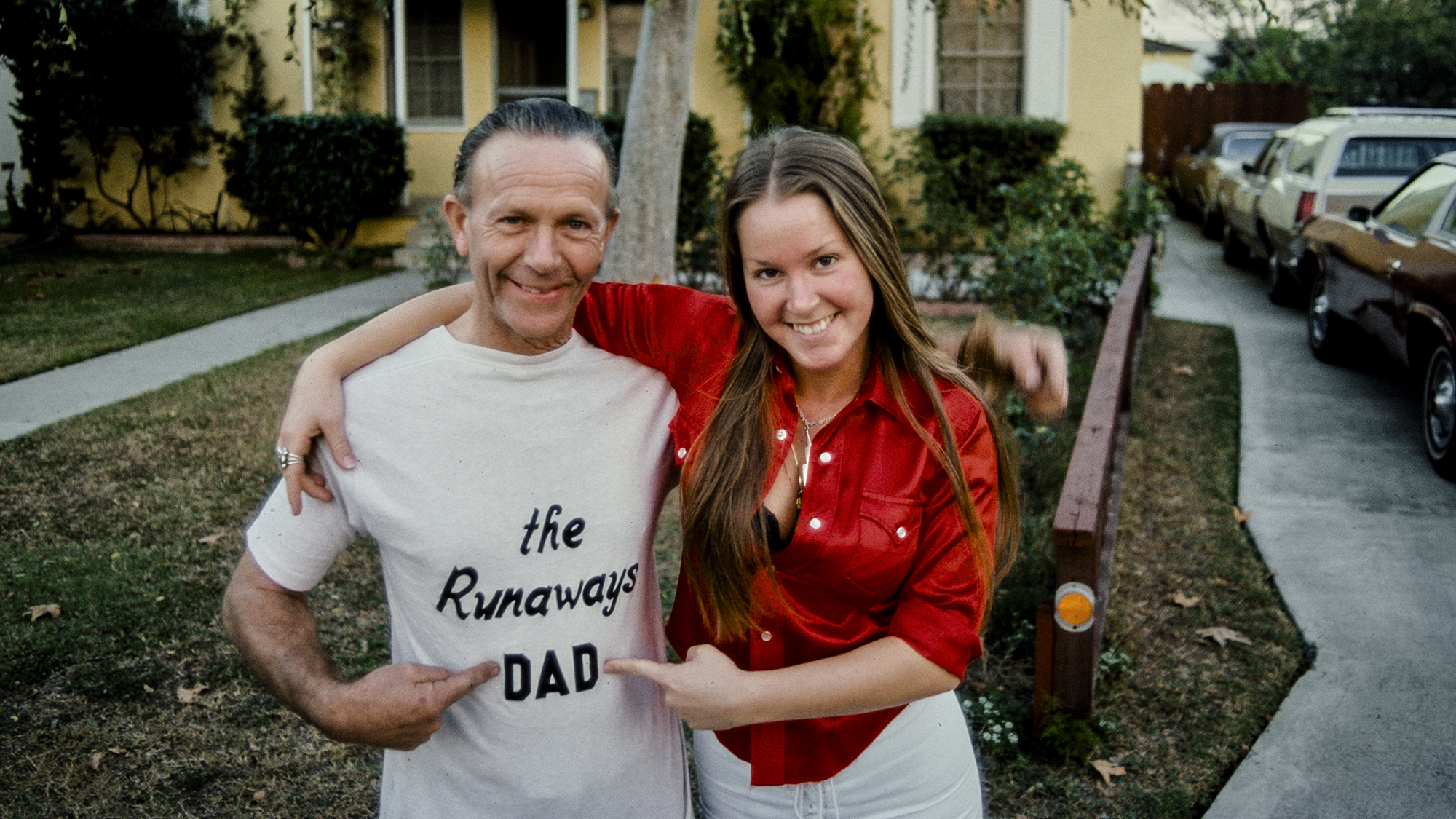“I called Eddie and Alex and said, ‘I’ve got some songs — you want to help me do these demos?’” Gene Simmons on the guitar solo Eddie Van Halen recorded for a Kiss hit — and Ace Frehley copied note for note
Simmons was producing Van Halen at the time in the hope of turning the group into superstars

All the latest guitar news, interviews, lessons, reviews, deals and more, direct to your inbox!
You are now subscribed
Your newsletter sign-up was successful
The one-two punch of Alive! and Destroyer made Kiss a success in the mid 1970s. In the summer of 1976, shortly after the release of Destroyer, Gene Simmons decided to use his newfound fame and fortune to help find and lead another group to the top of the charts. While in Los Angeles, he saw a young, unsigned Van Halen perform on the Sunset Strip and decided he would turn them into superstars.
He cut a demo tape with the group — Eddie Van Halen, drummer Alex Van Halen, singer David Lee Roth and bass guitar player Michael Anthony — at Village Recorder in L.A., then flew the group to New York City for overdubs and final production at Electric Lady Studios.
Nothing much came of the effort — Kiss’s management vetoed Simmons’ request to sign the group — but the bassist stayed friendly with Van Halen. (Simmons has said Eddie even tried to join Kiss in 1983 when he grew tired of leading his own band.)
As Simmons explains, while Van Halen were in New York City, he hired Eddie and Alex to help him record demos for three songs, including the Kiss hit “Christine Sixteen.” Simmons says he liked Eddie’s guitar solo on the cut so much that he made Kiss guitarist Ace Frehley copy it note for note.
“Around ’77, I wrote ‘Christine Sixteen’ and two other songs,” Simmons says. “On the way back from Japan, at one in the morning, I called Eddie and Alex and said, ‘I’ve got some songs — you want to help me do these demos?’ And they did.
“Eddie did the solo on ‘Christine Sixteen’ in one take. I loved it so much that I made Ace copy it note for note. So when you hear ‘Christine Sixteen,’ that’s Eddie’s solo you’re hearing, but copied by Ace.”
Granted, the solo is short on the kind of fireworks Eddie would soon be unleashing on Van Halen’s records, but it’s a tasty fill that shows young Ed’s maturity as a player. Whereas another guitarist might have used the opportunity to show off his chops, Ed gives the song just what it needs.
All the latest guitar news, interviews, lessons, reviews, deals and more, direct to your inbox!
Simmons might have showed similar restraint. When it comes to crude and rude rock songs, they don’t get much worse than “Christine Sixteen,” which Kiss delivered on their 1977 album, Love Gun. The song concerns a 16-year-old girl, and the much older singer — Simmons was 27 at the time — who is spending too much time hanging around her high school waiting for a glimpse of her. Many radio stations banned the song. Others played it only during late-night broadcast hours.
As Simmons explained in the liner notes to his 2017 box set, The Gene Simmons Vault, the song was written as a retort to Kiss guitarist Paul Stanley.
“Paul would say, ‘Gene, all you ever write about are monster songs. Like ‘God of Thunder,’’’ Simmons wrote. In fact “God of Thunder” didn’t exist at the time Stanley said it; he just made the name up in the moment, but it sparked an idea. “And of course, he went home and wrote that song, as a semi-parody of a Gene song,” Simmons explained.
Simmons similarly challenged Stanley, telling him, “All you ever write are teenage girlie songs, like ‘Christine Sixteen.’
“And as soon as I heard myself say that, I quickly wrote it.”
Perhaps too quickly. With lyrics like “when I saw you coming out of school that day / that day I knew, I knew / I’ve got to have you,” “Christine Sixteen” is creepy and cringey.
Nevertheless, it reached a respectable number 25 on the Billboard charts.
Notably, “Christine Sixteen” isn’t the only time Frehley copied a solo. As Simmons told The Magnificent Others With Billy Corgan last February, the late Ace was a huge fan of Doors guitarist Robby Krieger and copied his electric guitar solo for “She,” a track from the 1975 Kiss album, Dressed to Kill. The Krieger solo comes from the Doors’ “Five to One,” from their 1968 album, Waiting for the Sun.
Christopher Scapelliti is editor-in-chief of GuitarPlayer.com and the former editor of Guitar Player, the world’s longest-running guitar magazine, founded in 1967. In his extensive career, he has authored in-depth interviews with such guitarists as Pete Townshend, Slash, Billy Corgan, Jack White, Elvis Costello and Todd Rundgren, and audio professionals including Beatles engineers Geoff Emerick and Ken Scott. He is the co-author of Guitar Aficionado: The Collections: The Most Famous, Rare, and Valuable Guitars in the World, a founding editor of Guitar Aficionado magazine, and a former editor with Guitar World, Guitar for the Practicing Musician and Maximum Guitar. Apart from guitars, he maintains a collection of more than 30 vintage analog synthesizers.

